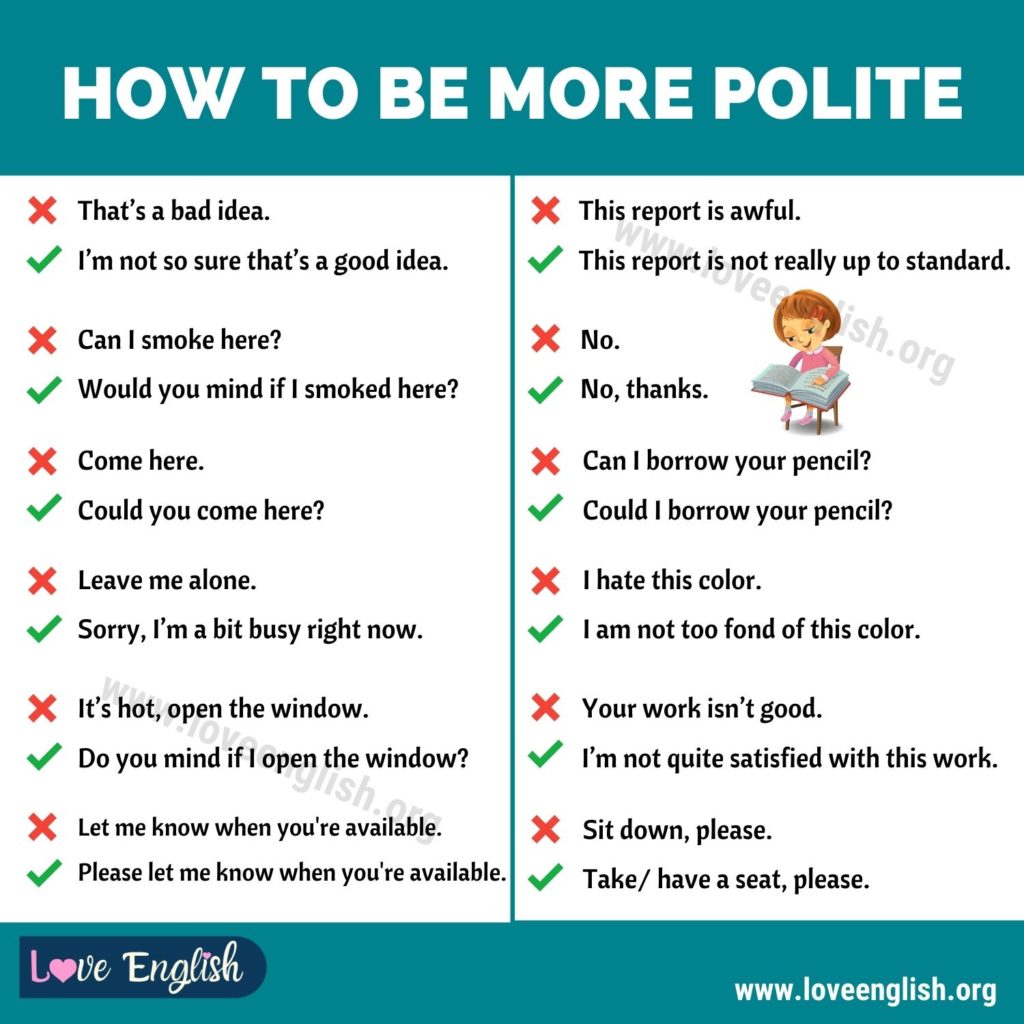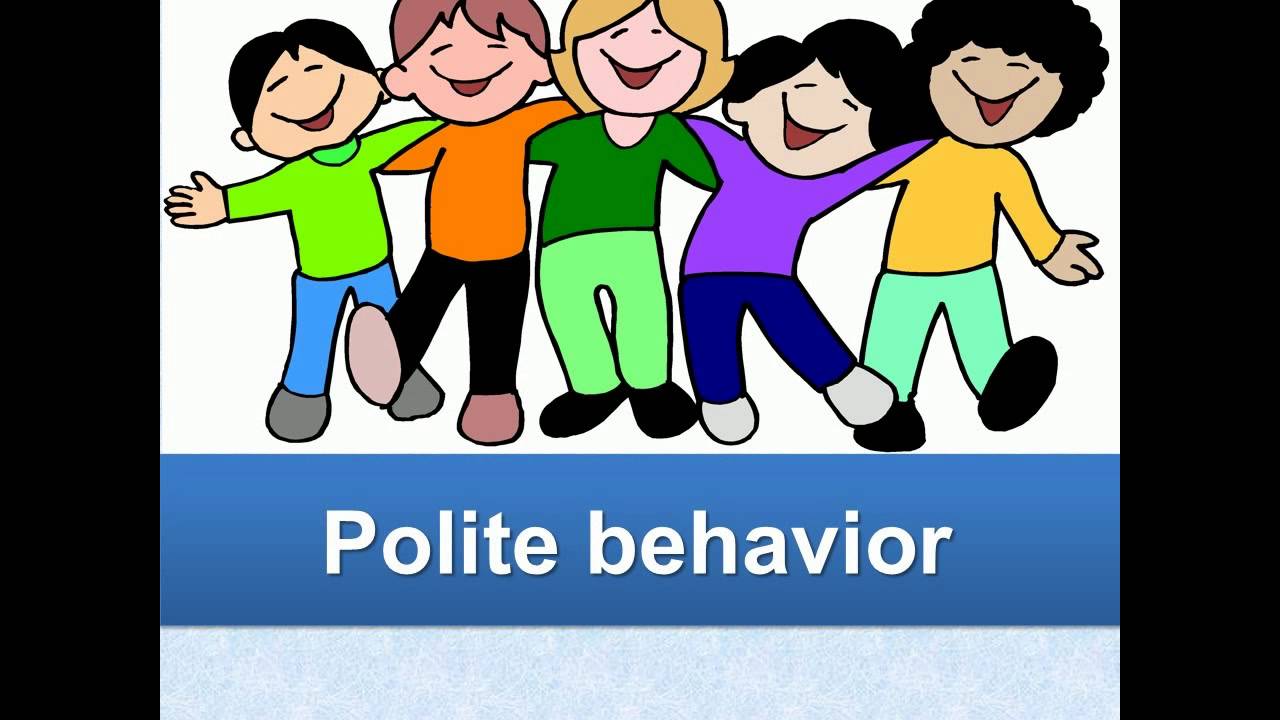Hey there, my friend! Let’s talk about something that can totally change your life. Being "I'm polite" isn’t just about saying please and thank you—it’s a superpower that can open doors you didn’t even know existed. Imagine walking into a room and instantly making people feel respected and valued. That’s the magic of politeness, and trust me, it’s a skill worth mastering.
Now, you might be thinking, "Is being polite really that important in today’s world?" The answer is a big fat YES! Politeness isn’t just about manners; it’s about creating connections, building trust, and making a positive impact. And let’s face it, who doesn’t want to be the kind of person people love being around?
In this article, we’re diving deep into the world of politeness. We’ll explore why being polite matters, how it can transform your relationships, and even some cool tips to level up your politeness game. So, buckle up and let’s get started!
Read also:Mckinley Richardson The Rising Star Redefining Talent And Ambition
Table of Contents
- The Power of Politeness
- Why Being Polite Matters
- Benefits of Being Polite
- Tips to Be More Polite
- Common Mistakes to Avoid
- Politeness in the Workplace
- Politeness in Social Situations
- Politeness in the Digital World
- Famous Polite People
- Politeness Across Cultures
- Conclusion
The Power of Politeness
Let’s kick things off by talking about the power of being "I'm polite." Politeness isn’t just about holding the door open for someone or saying excuse me when you sneeze. It’s about creating an atmosphere where people feel respected and valued. And honestly, that’s a pretty big deal.
What Does Politeness Look Like?
Politeness can take many forms. It’s about listening when someone is talking, being patient when things don’t go your way, and showing gratitude for the little things. It’s about treating people with kindness, even when it’s hard. And you know what? People notice. They remember how you made them feel, and that’s the real power of politeness.
Why Being Polite Matters
Okay, so why does being polite matter so much? Well, let me break it down for you. Politeness builds trust. When you’re polite, people are more likely to trust you, work with you, and even help you out when you need it. It’s like a golden ticket to success in both your personal and professional life.
Politeness and Relationships
Think about your relationships for a second. Whether it’s with your family, friends, or coworkers, politeness plays a huge role. It helps prevent misunderstandings, resolves conflicts, and strengthens bonds. And who doesn’t want stronger, healthier relationships?
Benefits of Being Polite
So, what do you get out of being polite? A whole lot, actually. Here are just a few benefits:
- Improved communication skills
- Stronger relationships
- Increased respect from others
- More opportunities in your career
- Greater personal satisfaction
See? Being polite isn’t just about being nice—it’s about improving your life in so many ways.
Read also:Sellers Amanda The Rising Star In The Ecommerce World
Tips to Be More Polite
Alright, let’s get practical. Here are some tips to help you up your politeness game:
- Always say please and thank you
- Listen actively when someone is talking
- Be patient and understanding
- Show gratitude for the little things
- Respect other people’s boundaries
These might seem like small things, but they can make a huge difference in how people perceive you.
Common Mistakes to Avoid
Even the best of us make mistakes when it comes to politeness. Here are a few to watch out for:
- Interrupting people when they’re talking
- Being rude or dismissive
- Not respecting personal space
- Forgetting to say thank you
Avoiding these mistakes can go a long way in helping you be more polite.
Politeness in the Workplace
Let’s talk about politeness in the workplace. Being polite at work isn’t just about being nice to your coworkers. It’s about creating a positive work environment where everyone feels respected and valued. And trust me, that’s a big deal.
Politeness and Productivity
When people feel respected and valued, they’re more likely to be productive. It’s a win-win situation. So, if you want to boost productivity in your workplace, start by being polite. It’s as simple as that.
Politeness in Social Situations
Now, let’s talk about politeness in social situations. Whether you’re at a party, a dinner, or just hanging out with friends, being polite can make a huge difference. It helps you make a great impression and build stronger relationships.
Politeness and First Impressions
First impressions matter. And being polite is one of the best ways to make a great first impression. So, next time you meet someone new, remember to be polite. It could be the start of a beautiful friendship.
Politeness in the Digital World
Let’s not forget about politeness in the digital world. With so much communication happening online these days, it’s more important than ever to be polite in your digital interactions. Whether you’re sending an email, posting on social media, or commenting on a blog, politeness matters.
Politeness and Online Communication
Here are a few tips for being polite online:
- Use clear and respectful language
- Avoid sarcasm or passive-aggressive comments
- Respond promptly to messages
- Show appreciation for people’s input
These small gestures can make a big difference in how people perceive you online.
Famous Polite People
Let’s take a look at some famous polite people. These folks have made politeness a part of their brand, and it’s paid off big time. Think about people like Oprah Winfrey, Michelle Obama, and Barack Obama. They’re all known for their politeness, and it’s one of the reasons they’re so respected and admired.
What Can We Learn from Them?
So, what can we learn from these famous polite people? First, that politeness is a powerful tool. Second, that it’s something we can all work on. And third, that it’s worth the effort. Being polite isn’t just about being nice—it’s about making a positive impact on the world.
Politeness Across Cultures
Finally, let’s talk about politeness across cultures. Different cultures have different ideas about what politeness looks like. In some cultures, it’s all about formalities. In others, it’s about showing respect in more subtle ways. Understanding these differences can help you be more polite in any situation.
Politeness in Different Cultures
Here are a few examples:
- In Japan, politeness is all about bowing and using honorifics
- In the US, politeness is often about being direct but respectful
- In India, politeness is about showing respect for elders and traditions
See? Politeness looks different in different places, but it’s always important.
Conclusion
Alright, that’s a wrap! We’ve talked about why being "I'm polite" matters, the benefits of being polite, and how you can be more polite in different situations. Remember, politeness isn’t just about manners—it’s about creating connections, building trust, and making a positive impact. And that’s something we can all get behind.
So, what are you waiting for? Start practicing your politeness skills today. And don’t forget to share this article with your friends and family. Let’s make the world a more polite place, one person at a time. Thanks for reading, and see you next time!


